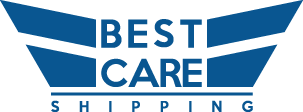Vietnam, China account for 45% of ROK aluminium exports
The Republic of Korea ROK is today one of the key aluminium producers in Asia with consumption primarily driven by demand in the Vietnamese and Chinese manufacturing sector according to official studies.
The studies forecast that industrial production in the ROK will grow on average 5.9% per year through 2025, driven by expanded consumption in Asia, already at record highs, even further.
Vietnam and China together account for 45% of the demand for aluminium plate, sheet and strip output of the ROK, according to government figures.
Statistics show that outbound merchandise shipments for aluminium plates, sheets and strips have been on a steady upward trajectory over the past decade with the volume of tonnage expected to further grow at a 7% clip over the next few years.
The revenue generated by the exporters stood at US$1.5 billion and US$3.8 billion for the years 2015 and 2016, respectively with the growth primarily fueled by increased downstream manufacturing in the automotive and packaging segments of the economies of Vietnam and China.
 |
Positive outlook for packaging drives aluminium imports
Meanwhile, a report last year of the Ministry of Industry and Trade (MOIT) showed that Vietnam must import 100% of its aluminium needs, about 500,000 tons at an estimated cost of US$1.2 billion annually.
The report also showed that aluminium imports were forecast to expand significantly over the next decade largely because of increased sales in the fast-moving consumer goods retail segment of the economy.
With the rising concern among Vietnamese consumers for protecting the environment, the country’s packaging industry is likely to move more towards ‘green’ and recyclable packaging and labelling, says the MOIT.
The ability of aluminium to form any shape and its protective qualities have made it the most versatile packaging material around the globe. Additionally, a key benefit is that aluminium foil, aluminium cans and other aluminium packaging materials can be fully recycled and reused an infinite number of times.
Aluminium foil is non-toxic, so it does not damage the foods wrapped in it, but instead protects them. The foil is used in food containers, bins, bottle caps, soft packages for liquids or bulk food stuffs and many other types of containers.
Due to the benefits of a free trade agreement between Vietnam and the ROK that came into effect in 2015, which provides for tariff reductions among other non-tariff benefits, proximity and the country’s dependence on aluminium imports, the MOIT expects the demand for aluminium from the ROK to remain strong.
Source: VOV
TAGS
- export
- trade
- customs
- export import
- import-export
- rice export
- shrimp export
- logistics
- vietnam export
- import
- economic
- trucking
- imports
- shipping
- exports
- fruit import
- deficit
- business
- key export
- international trade
- eu trade
- membership in asean
- tuna export
- fibre, yarn export
- export to algeria
- import export vietnam thailadn trade
- businesses
- mobile phones export
- cargo container
